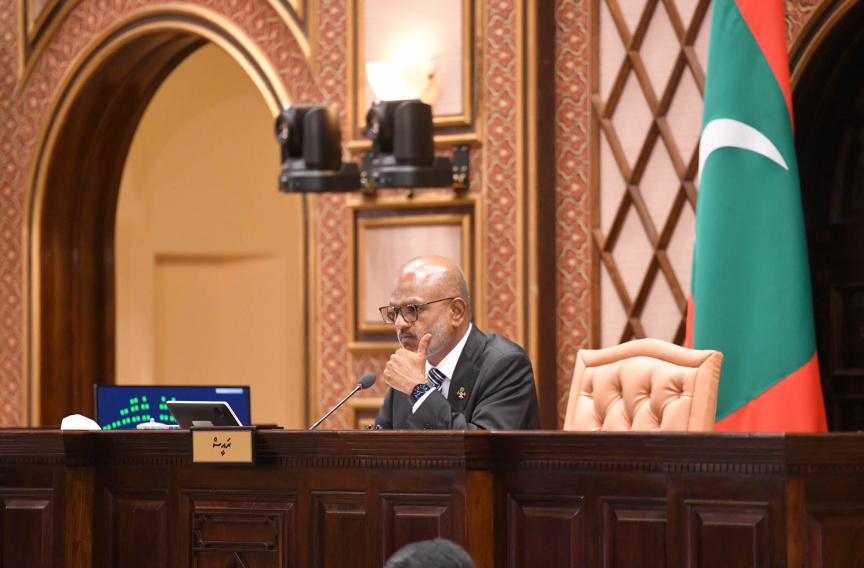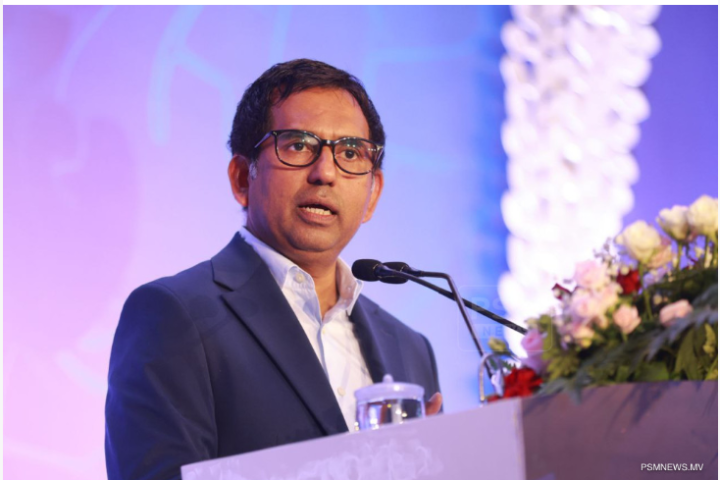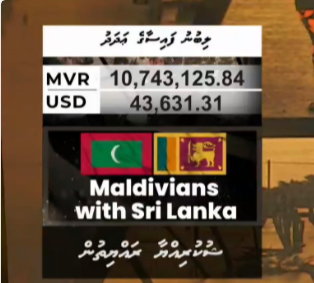Malé, Maldives — In a striking accusation, Deputy Speaker Ahmed Nazim alleged that the opposition orchestrated a ‘financial coup’ involving the Bank of Maldives (BML) in a deliberate attempt to destabilize the country’s economy. Nazim claimed the plot was thwarted just in time when the government preemptively removed Central Bank Governor Ali Hashim from office. This move, Nazim said in an exclusive interview with Sun Online, played a pivotal role in averting a potential financial crisis.
Police are now investigating BML’s decision to halt Visa and Amex card transactions in USD linked to Maldivian Rufiyaa accounts, as well as a coinciding opposition press conference, as part of a broader criminal probe.
“We knew there are sensitive days ahead economically. Our economy is at significant risk,” Nazim stated. He explained that upon taking office, the government discovered “substantial gaps” in the financial records, highlighting the urgency of decisive action.
Nazim defended the decision to dismiss Hashim, pointing to the former Central Bank Governor’s inability to address critical issues like the persistent dollar shortage. “It was a necessary step,” he said, framing the dismissal as essential to tackling the country’s economic challenges head-on.
The Deputy Speaker did not hold back in his criticism of BML’s recent decisions, describing the bank’s abrupt discontinuation of dollar transactions as “irresponsible.” He argued that such drastic measures should not be taken without adequate notice. “Such services cannot be abruptly cut off from one day to the next,” Nazim remarked, emphasizing that students abroad and embassy workers heavily rely on these financial services. He suggested that BML should have first allowed the opening of dollar accounts linked to the cards before making any changes.
The backlash over BML’s announcement was swift, with public outcry from students studying overseas and small business owners who felt blindsided by the decision. BML later reversed its stance following a directive and intervention from the Maldives Monetary Authority (MMA). Nazim praised the MMA’s intervention, crediting the swift action taken after Governor Hashim’s dismissal for quelling what he described as a brewing crisis. “The preemptive measure to change the governor helped us mitigate a crisis, and the MMA policy was implemented immediately,” he said.
Nazim also touched upon the long-standing dollar shortage issue, arguing that it had been ignored by previous administrations. He voiced support for the new measures introduced by President Dr. Mohamed Muizzu, which include requiring dollar-earning companies to pay taxes in dollars and mandating that dollar transactions go through official banking channels. “We are finally seeing steps toward addressing the real problem facing the country,” Nazim asserted, calling these initiatives “prudent decisions” that the Maldivian people should welcome.
To put the dollar issue in perspective, the Maldives faces a consistently high demand for USD, driven by several factors. Expatriate workers remit approximately USD 500 million each year, a sum that mirrors the country’s annual expenditure on oil imports. The nation’s GDP, around USD 7 billion, relies heavily on foreign currency earnings, making the balance between dollar inflows and outflows a critical concern. This reliance on USD for international transactions highlights the urgency of addressing the dollar shortage.
To mitigate this issue, the government plans to diversify its revenue sources, including the introduction of bunkering services for ocean-crossing vessels, set to begin next month. These new initiatives aim to contribute at least 1% of the nation’s GDP. Additionally, by requiring dollar-earning companies to pay their taxes in USD, the state expects to increase revenue by an estimated USD 40 to 80 million.
As these economic measures take shape, the government is optimistic that they will stabilize the economy and provide a long-awaited solution to the dollar crisis that has plagued the Maldives for years.










